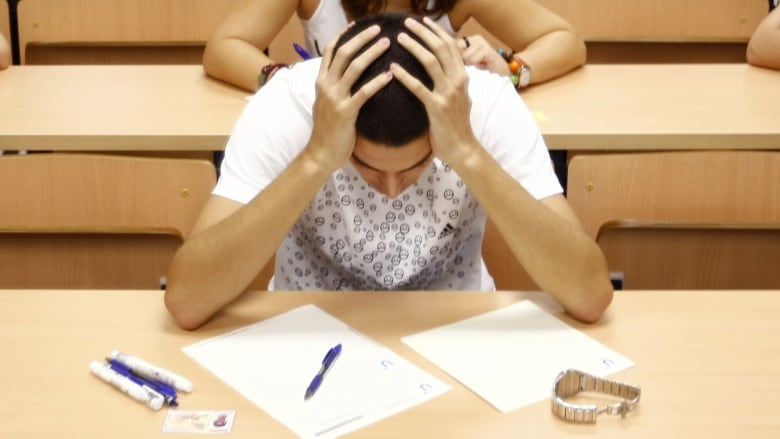Mental illness, behavioural issues worry teachers, school counsellors
School counsellors say there's not enough of them to meet needs

You might think some of the biggest concerns among teachers in this province would have to do with academic performance of students or maybe class size. Think again.
In a recent surveyconducted by the Canadian Teachers Federation, teachers indicate their top threeconcerns have more to do with students' mental healthand social well being. Jim Dinn is president of the Newfoundland and Labrador Teachers Association.
"The top issue by far had to do with child and youth mental health, followed closely by child and youth poverty and then safe and caring schools."Dinn saidhe repeatedly hears from schools in this province that behavioural issues are causing constant interruptions in classrooms.
"I would hear a lot of stories about violent students, students not being able to control themselves, to self regulate and surprisingly a lot of those issues I found at the primary and elementary level.In some cases, we've had stories of teachers being bitten, being punched. I've seen the bruises so it's a concern, definitely a concern that's being expressed by teachers," Dinntold CBC Radio's On the Go.
This is no surprise to Angie Wilmott, president of the Newfoundland and Labrador School Counsellors and Psychologists Association. She says there just aren't enough counsellors in schools to help students.
"We've got very competent, caring professionals who are all saying the same thing, they can see the needs, they feel they have a lot to give.Unfortunately, there is a limit of time and when you spread yourself so thin from child to child, and youth to youth, family to family,when you spread yourself so thin, you become very ineffective and that's very frustrating for these people. I'm seeing very frustrated counsellors and psychologists," saidWilmott.
According to Wilmott there's an increase in cases of autism, ADD and substance abuse among students and their families.Wilmott is particularly concerned about another behaviour that she says has spread "like wildfire" among youth.
"One of the things we are seeing across the province is a significant increase in self harm. We're seeing many more students cutting as an outlet to deal with stress which is something obviously we certainly do not want them to do, it's a highly addictive practice and certainly not a positive way of dealing with the stress in your life," she said.
Wilmott saidthe current ratio of counsellors to students is 1:500.After almost 20 years in the school system, Wilmott, who is also an educational psychologist, says change in student behaviour and mental health has been dramatic. Her group would like to see a ratio of 1:250 to reflect the increasing complex workloads.
"In a day to day job, it is exhausting our caregivers and that makes it difficult to be effective, if you're tired and dragged out because you've been focusing on so many crises day after day, it makes it very hard for you to be a good role model of what a healthy person is," saidWilmott.
With tightening budgets in government, Wilmott saidshe's not optimistic there will be more school counsellor positions created.She's calling on parents to do their best to try and prevent anxiety and stress among school-aged children and youth.
"I'm constantly preaching to families about having control over the technology, not allowing kids to go to bed with their cell phones, to be on the video games late at night, to be watching Netflix late at night because you know, these things are stimulating the brain, reducing the natural ability to go to sleep and kids are coming to school already physically stressed," saidWilmott.
"If people were getting good sleep, and eating well and getting exercise, I think it would reduce the number of cases that are currently coming to school counsellors, family doctors and psychiatrists. You know we're not living a healthy lifestyle."
In a recent survey of school counsellors in the province, Wilmott said91 per cent of her membership indicated there were mental health issues that they feltthey couldprevent.
Wilmott saidcounsellors just need more time to strengthen troubled kids.
"We're there at key phases ofdevelopment and we have an understanding of how we can support and empower kids.It's very disheartening when you know you have the skills, and if you just had the time maybe you could have prevented many of these crises from happening," she said.












_(720p).jpg)


 OFFICIAL HD MUSIC VIDEO.jpg)
.jpg)



























































































